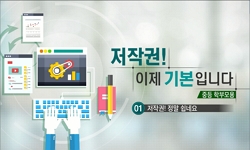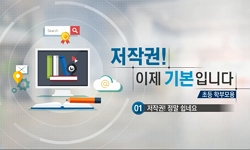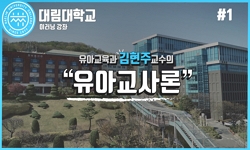The purpose of this study was to compare the way kindergarten teachers and parents looked at kindergarten education in an effort to determine some of the right directions for future kindergarten education. The research questions were posed as below: ...
http://chineseinput.net/에서 pinyin(병음)방식으로 중국어를 변환할 수 있습니다.
변환된 중국어를 복사하여 사용하시면 됩니다.
- 中文 을 입력하시려면 zhongwen을 입력하시고 space를누르시면됩니다.
- 北京 을 입력하시려면 beijing을 입력하시고 space를 누르시면 됩니다.
유치원 교사와 학부모의 유치원 교육에 대한 인식 비교 = (A) Study on the Recognition Comparison of Kindergarten Teachers and Parent about Kindergarten Education
한글로보기https://www.riss.kr/link?id=T9168311
- 저자
-
발행사항
창원 : 창원대학교 대학원, 2003
-
학위논문사항
학위논문(석사)-- 창원대학교 대학원: 교육학과 2003. 8
-
발행연도
2003
-
작성언어
한국어
- 주제어
-
KDC
375.16 판사항(4)
-
발행국(도시)
경상남도
-
형태사항
iv, 76p. ; 26cm
-
일반주기명
참고문헌: p. 60-61
- 소장기관
-
0
상세조회 -
0
다운로드
부가정보
다국어 초록 (Multilingual Abstract)
The purpose of this study was to compare the way kindergarten teachers and parents looked at kindergarten education in an effort to determine some of the right directions for future kindergarten education. The research questions were posed as below:
First, how do teachers and parents perceive the necessity of kindergarten education?
Second, what is their view of kindergarten management?
Third, what is their outlook on kindergarten teacher?
Fourth, what is their opinion about all-day kindergarten class?
The subjects in this study were 74 teachers and 163 parents from public and private kindergartens in the cities of Masan and Changweon. A survey was conducted with questionnaires that covered their outlook on kindergarten education, management, teacher and all-day class. The questionnaire for teacher consisted of 24 items, and the other one for parents included 26 items. The collected data were analyzed with SPSS program, and frequency analysis and crosstab were implemented.
The findings of this study were as follows:
First, all the parents and teachers investigated felt the need for kindergarten education, and the reason was to improve sociability.
Second, regarding the best education time, kindergartens should be open from 9 a.m. to 2 or 3 p.m., and two years were regarded as the best term to attend kindergarten. As for an ideal size, kindergarten should have six to eight classes or three to five classes, and the number of children in a class shouldn't exceed 20. Snack services were mostly provided by the kindergartens themselves.
Third, the parents thought that the kindergarten teachers tended to be qualified. Concerning what's most needed for kindergarten teachers, the parents placed the most stock in love for children and sympathy, whereas the teachers gave the most weight to intellectual ability and expertise.
Fourth, regarding all-day class organization, the parents preferred homogeneous age group, and teachers favored multiage group. The small-group activities made up the largest part of the all-day class programs. The parents wanted all-day class to offer education in the morning and extracurricular activities in the afternoon, while the teachers found it necessary to provide a variety of education activities both in the morning and afternoon. In most cases, there were a main teacher and an assistant teacher in each all-day class. Concerning what's most crucial in all-day programs, the parents prioritized emotional stability(43.6%), and the teachers considered it most important to build basic life habits. Regarding what teacher should be most interested in, the largest group of the parents believed teacher should try to provide a variety of programs, and the teachers viewed child health, sanitation and safety management as most vital. The teachers thought that all-day programs should be designed to facilitate emotional and sociability development, whereas the parents gave more weight to intellectual and verbal development. Basic live habits and personality were also considered more important by the parents. To make all-day programs successful, it's most urgently needed to secure sufficient teachers and reduce their heavy workload.
목차 (Table of Contents)
- 목차 = ⅰ
- Ⅰ. 서론 = 1
- 1. 연구의 필요성 및 목적 = 1
- 2. 연구문제 = 2
- Ⅱ. 이론적 배경 = 3
- 목차 = ⅰ
- Ⅰ. 서론 = 1
- 1. 연구의 필요성 및 목적 = 1
- 2. 연구문제 = 2
- Ⅱ. 이론적 배경 = 3
- 1. 유아교육에 대한 환경적 변화 = 3
- 가. 유아교육의 중요성 증대 = 3
- 나. 유아교육을 위한 환경 = 4
- 2. 유아교육의 현실적 문제 = 8
- 가. 교육과정상 문제점 = 8
- 나. 종일반 운영 문제점 = 11
- 3. 유아교육에 대한 부모들의 요구 = 12
- 4. 선행연구 분석 = 16
- Ⅲ. 연구방법 = 25
- 1. 연구대상 = 25
- 2. 연구도구 = 26
- 3. 자료분석 = 27
- Ⅳ. 연구결과 및 분석 = 28
- 1. 유치원 교육의 필요성에 대한 학부모와 교사의 인식 = 28
- 2. 유치원 운영관리에 대한 학부모와 교사의 인식 = 30
- 3. 유치원 교사에 대한 학부모와 교사의 인식 = 40
- 4. 유치원 종일반 운영에 대한 학부모와 교사의 인식 = 43
- 5. 논의 = 53
- Ⅴ. 요약 및 결론 = 56
- 참고문헌 = 60
- 부록 = 62
- ABSTRACT = 74












